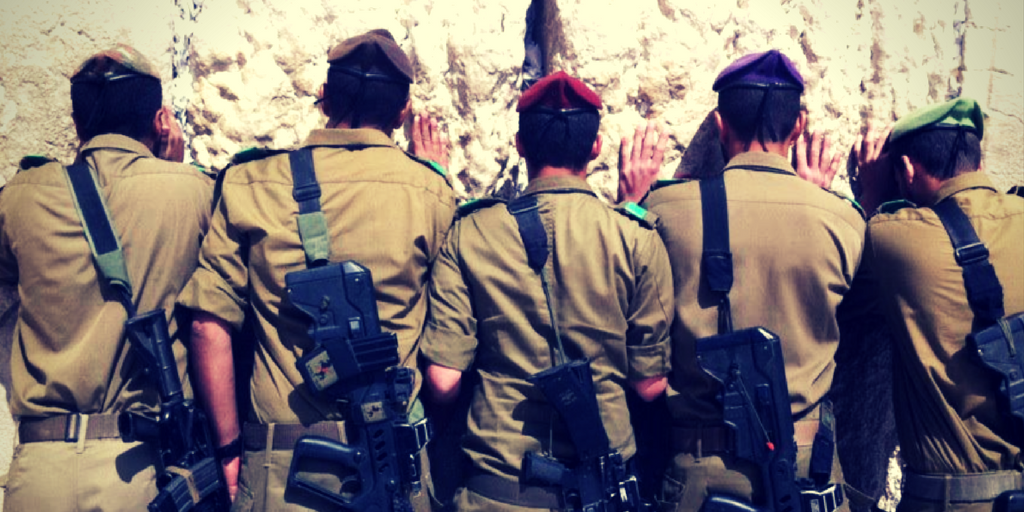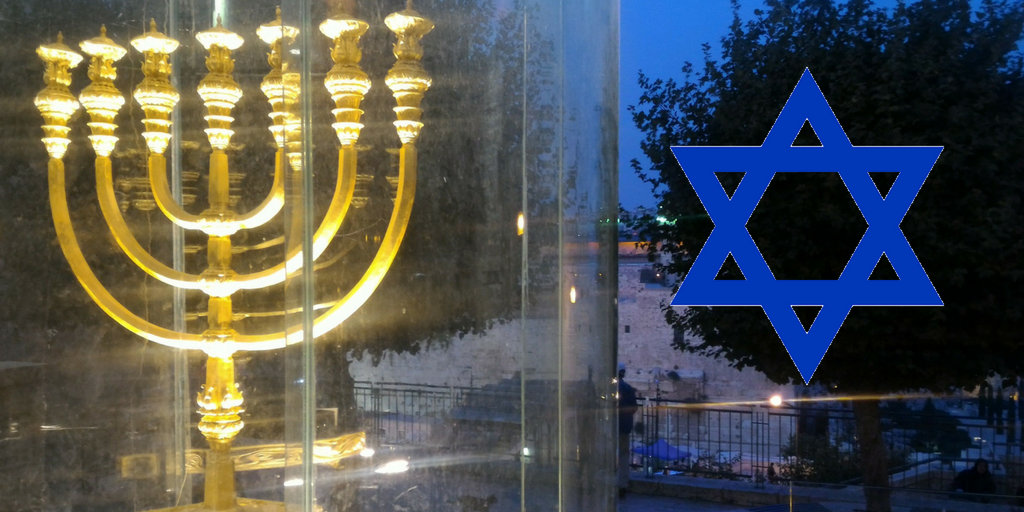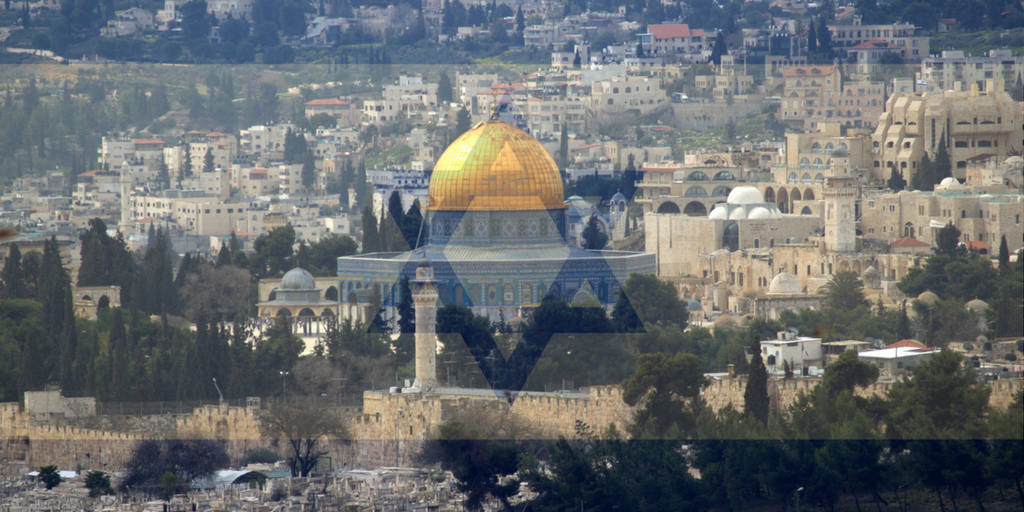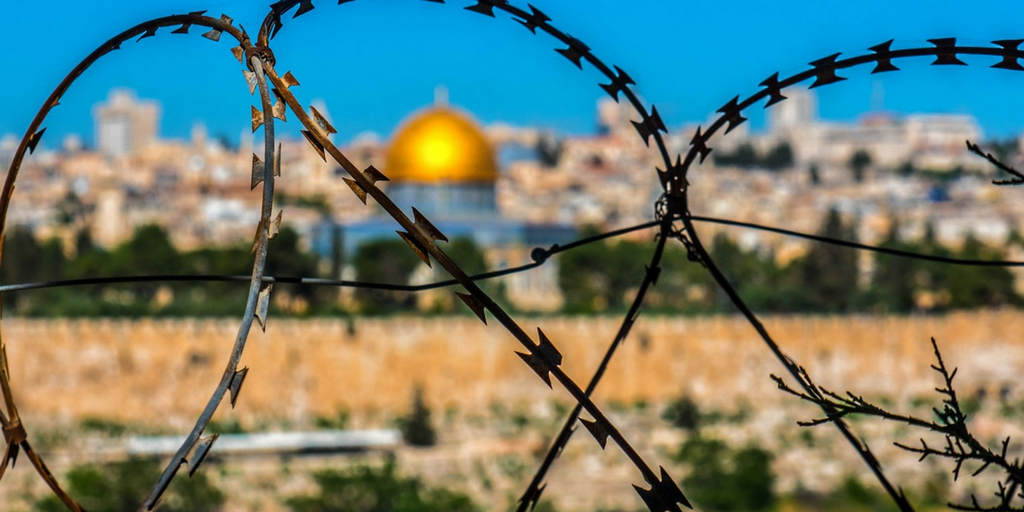As the Hebrew Nation mobilized to liberate the Land of Israel from Canaanite rule, Moshe dispatched a team of twelve tribal chiefs – each the spiritual leader of his tribe – to spy out the country in preparation for the assault. Ten of those spies returned with a misleading report meant to demoralize the nation and prevent the conquest from taking place. The other two, Yehoshua and Kalev, courageously challenged the ten in a noble attempt to save Israel from sin. The masses, however, followed the majority opinion and, in doing so, brought about a national catastrophe.
The spies who brought their people a demoralizing report were ostensibly demonstrating a rationalist approach to the situation. They saw and were concerned over the difficulties their people would be forced to confront when fighting to conquer their land.
“The people that dwells in the land are powerful, the cities are fortified and very great, and we also saw the giant’s descendants there… We cannot ascend against those people for they are too strong for us (mimenu).” (BAMIDBAR 13:28, 31)
Because the word mimenu can be understood as either “for us” or “for him” Rashi comments that it was as though they were speaking about HaShem, claiming that those Canaanite nations were even stronger than the Kadosh Barukh Hu.
The ten tribal chiefs weakened Israel’s resolve, leading the people to come forth with such complaints as “Why is HaShem bringing us to this land to die by the sword? Our wives and young children will be taken captive! Is it not better for us to return to Egypt?” (BAMIDBAR 14:3)
Most of Israel sided with the defeatist spies and perished in the desert over a period of forty years. The conquest of Eretz Yisrael was delayed until a new generation could arise that would be psychologically capable of fighting for their country. It was ultimately Yehoshua and Kalev – representing the minority opinion – who emerged victorious decades later, leading their people in the liberation of the homeland.
The ten spies that led the Hebrew Nation to catastrophe were essentially putting forth two basic arguments. The first was that preserving life overrides the conquest of Eretz Yisrael, claiming that if taking possession of the land appears to be dangerous, the people are not required to do so.
The second opinion expressed by these tribal chiefs was that it is possible and permissible to live full Torah lives outside the Land of Israel; that the Nation of Israel need not be within its borders to be loyal to HaShem or to live by His Torah. But this claim itself negates Torah Law. The spies – giants of Israel and leaders of the Sanhedrin– rebelled against HaShem in refusing His directive to conquer Eretz Yisrael. Their treason revealed a terrible lack of faith and was a transgression far worse than that of the golden calf. For the sin of the calf, only three thousand were punished but for the sin of the spies, all male adults aside from Yehoshua and Kalev perished in the desert before ascending to their homeland.
The Sages teach (Tanḥuma, Sanhedrin 104b, Taanit 29a) that the sin of the spies took place on the ninth day of Av and was the foundation for the destructions of both the first and second Temples (both occurring on the same date in future years).
Rabbi Moshe Ḥaim Lutzatto explains in Mesillat Yesharim (chapter 11) that the tribal chiefs “feared a lessening of their honor, lest, upon entering the land, they would no longer be princes of Israel, and others would be appointed in their place.”
It is a regrettable truth that this transgression has repeated itself throughout Israel’s history. Spiritual leaders often refrain from educating their followers that living in the Land of Israel is not merely a commendable personal choice but actually an underlying basis for the entire Torah. But if this error has infected even great scholars, we must question how so many otherwise righteous and learned giants could miss something so vital to the Torah’s full expression. The Gaon of Vilna offers an explanation in Kol HaTor (the Gaon’s teachings on the process of redemption):
“The Sin of the Spies… hovers over the Nation of Israel in every generation… How strong is the power of the Sitra Aḥra that it succeeds in hiding from the eyes of our holy fathers the dangers of the klipot; from the eyes of Avraham our father, the klipah of exile… and in the time of the Messiah, the Sitra Aḥra attacks the guardians of Torah with blinders… Many of the sinners in this great sin of, ‘They despised the cherished land,’ and also many of the guardians of Torah, will not know or understand that they are caught in the Sin of the Spies, that they have been sucked into the Sin of the Spies in many false ideas and empty claims, and they cover their ideas with the already proven fallacy that the mitzvah of the settlement of Israel no longer applies in our day, an opinion which has already been disproven by the giants of the world, the Rishonim andAḥronim.” (Kol HaTor chapter 5)
In his supplement to the Rambam’s Sefer HaMitzvot, the Ramban teaches that it is a Torah commandment for every generation to take control of and inhabit the entire Land of Israel.
“This (a war to liberate Eretz Yisrael) is what our Sages call milḥemet mitzvah(obligatory war). In the Talmud (Sotah 44b) Rava said, ‘Yehoshua’s war of liberation was an obligatory duty according to all opinions.’ And do not err and say that this precept is the commandment to vanquish the seven nations… this is not so. We were commanded to destroy those nations when they fought against us and had they wished to make peace we could have done so under specific conditions. Yet we cannot leave the land in their control or in the control of any other nation in any generation… Behold, we are commanded with conquest in every generation… this is a positive commandment which applies for all time… And the proof that this is a commandment is this: ‘They were told to go up in the matter of the spies: ‘Go up and conquer as HaShem, G-D of your fathers, has spoken to you. Do not fear and do not be discouraged.’ And it further says: ‘And when HaShem sent you from Kadesh Barnea saying, Go up and possess the land which I have given you.’ And when they did not go up, the Torah says: ‘And you rebelled against the Word of G-D, and you did not listen to this command.’” (Positive Commandment 4 of the Ramban’s supplement to the Rambam’s Sefer HaMitzvot)
The Ramban asserts that the conquest of Eretz Yisrael is a mitzvah for Israel in every generation and that we are forbidden from allowing any part of our country to fall into – or remain under – gentile control. It is found in the Shulḥan Arukh that all of the arbitrators of Torah Law (Rishonim and Aḥronim) agree with the Ramban concerning this issue.
“All of the Poskim, both Rishonim and Aḥronim, decide the Law in this fashion on the basis of the Ramban.” (Shulḥan Arukh, Even HaEzer section 75, Pitḥei Tshuva 6)
As for the spies’ claim that preserving life overrides the commandment to liberate the Land of Israel, it is clear that conquering territory from another people is naturally an act that involves physical danger. While the Torah commands Israel in most cases to preserve Hebrew life even at the expense of Torah Law, this cannot be applied to a Divine commandment that is, in its very essence, life threatening. Because the Torah obligates the Jewish people to fight for the liberation of Eretz Yisrael, the notion ofPikuaḥ Nefesh (preserving life) is not considered. Rather, a war of liberation requires great Mesirut Nefesh (self-sacrifice).
“The mitzvot of the Torah are not based on the occurrence of miracles. The mitzvah to wage war is given to us despite the fact that in the natural course of events both sides suffer casualties in the heat of battle. Evidently the mitzvah applies even though there is inherent danger…” (Minḥat Ḥinukh commentary to Sefer HaḤinukh 425)
The Gaon of Vilna writes in his introduction to Paat HaShulḥan that “all of the wisdoms of the world are for the sake of the Torah and are included within It.”
All of Creation, with all of its multiplicity and variety, is actually one organic whole that appears fragmented from the untrained human perspective. Due to our myopic perception, man tends to see everything as disconnected – and often even opposing – forces. But when we learn to view the world from the Divine perspective, we become capable of relating to everything we encounter – with all of their unique functions and distinctions – as exceptional pieces of one giant amazing puzzle.
The study of Emunah is learning to see the Divine light in its unity before its having been distilled into multiplicity from the human perspective – to see not only the seemingly fragmented branches but also the unified roots. This deeper approach to understanding Torah helps us to recognize the One that precedes and transcends the individual parts yet is at the same time revealed through them, thereby giving them their true significance and purpose in our world.
As the national expression of HaShem’s Ideal in this world, Israel must develop a holistic perspective of Torah that recognizes the deep inner unity of everything that exists within time and space. The fragmented perspective that caused the spies to see themselves as grasshoppers in comparison to the giants of Ḥevron is the same fragmented view – dimmed by nearly two thousand years of humiliating exile – that causes contemporary Jewish leaders to miss the significance of the time period we are currently living in and to relate to themselves as insignificant when compared to the leaders of foreign nations. This unhealthy perspective must be replaced by one that views HaShem as the Source of all, guiding world history towards an ultimate goal of universal perfection. Only by attaining this greater perspective can Israel begin to appreciate our true national mission and the purpose of Torah as the blueprint for all Creation.





